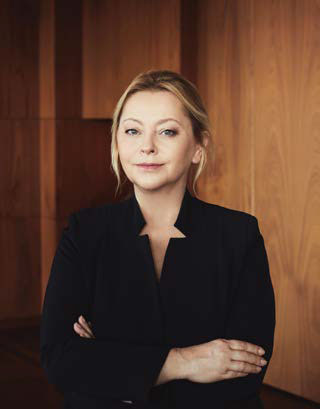Navigation Map
- strategy (insurance, health, investments, finances);
- sustainable development (sales, employees, social responsibility, natural environment and ethics).
PRACTICES
In the Chapter
GRIs
In the Chapter
GRIs
In the Chapter
List of GRIs
In the Chapter
GRIs
In the Chapter
GRIs
In the Chapter
GRIs
In the Chapter
GRIs
In the Chapter
GRIs
In the Chapter
GRIs
In the Chapter
GRIs
In the Chapter
Operating model
GRIs
- About the report
- Results
- Comment on the financial results for 2020
- Major factors contributing to the consolidated financial result
- PZU Group’s income
- PZU Group’s claims paid and technical provisions
- PZU Group’s acquisition and administrative expenses
- Drivers and atypical events affecting the results
- PZU Group’s asset and liability structure
- Contribution made by the market segments to the consolidated result
- Issuer’s financial results – PZU (PAS)
- Impact of the COVID-19 pandemic on the PZU Group’s results
- Business strategy (2017-2020)
- CSR strategy(2017-2020)
- Supplementary information and notes
- 1. Introduction
- 2. Composition of PZU Group
- 3. Shareholder structure
- 4. Composition of the Management Board, Supervisory Board and PZU Group Directors
- 5. Key accounting policies, key estimates and judgments
- 5.1 Impact of the COVID-19 pandemic on the estimates and assumptions
- 5.2 Changes in accounting policies and estimates, errors from previous years
- 5.3 Amendments to the applied IFRS
- 5.4 Explanation of differences between the 2019 annual consolidated financial statements and these consolidated financial statements
- 5.5 Consolidation principles
- 5.6 Measurement of transactions and balances denominated in foreign currencies and FX rates used
- 5.7 Purchase method
- 5.8 Classification of insurance contracts in accordance with IFRS 4
- 6. Segment reporting
- 7. Risk management
- 8. Equity management
- 9. Fair value
- 10. Gross written premium
- 11. Fee and commission income
- 12. Interest income calculated using the effective interest rate
- 13. Other net investment income
- 14. Result on derecognition of financial instruments and investments
- 15. Movement in allowances for expected credit losses and impairment losses on financial instruments
- 16. Net movement in fair value of assets and liabilities measured at fair value
- 17. Other operating income
- 18. Claims and movement in technical provisions
- 19. Fee and commission expense
- 20. Interest expenses
- 21. Acquisition costs
- 22. Administrative expenses
- 23. Employee expenses
- 24. Other operating expenses
- 25. Income tax
- 26. Earnings per share
- 27. Goodwill
- 28. Intangible assets
- 29. Other assets
- 30. Deferred acquisition cost
- 31. Property, plant and equipment
- 32. Investment property
- 33. Entities carried by the equity method
- 34. Loan receivables from clients
- 35. Financial derivatives
- 36. Investment financial assets
- 37. Receivables
- 38. Impairment of financial assets
- 39.Cash and cash equivalents
- 40. Equity attributable to equity holders of the parent
- 41. Technical provisions
- 42. Subordinated liabilities
- 43. Liabilities on the issue of own debt securities
- 44. Liabilities to banks
- 45. Liabilities to clients under deposits
- 46. Other liabilities
- 47. Provisions
- 48. Deferred income tax
- 49. Assets and liabilities held for sale
- 50. Lease
- 51. Assets securing receivables, liabilities and contingent liabilities
- 52. Contingent assets and liabilities
- 53. Offsetting financial assets and financial liabilities
- 54. Notes to the consolidated cash flow statement
- 55. Disputes
- 56. Transactions with related entities
- 57. Headcount
- 58. Other information
- Financial data (2019-2020)
- Financial data (2016-2020) Focus on: Results - check the highlights of the year!
- Comment on the financial results for 2020
- Market and business
- External environment
- Business model
- Structure of the Group
- Operating model
- Brand management
- Insurance
- Non-life insurance (PZU, LINK4 and TUW PZUW)
- Life insurance (PZU Życie)
- Insurance (international operations)
- Investments
- Investments (PZU TFI)
- Investments (PTE PZU)
- Health
- Health (health companies)
- Banking and strategic partnerships
- Banking (Bank Pekao, Alior Bank)
- Other operating areas
Focus on: Market and business - check the highlights of the year!
- Capitals (IIRC)
- Strategy and outlook 2021+
- Risk and ethics
- Objective of risk management
- Risk management system
- Risk appetite
- Risk management process
- PZU Group's risk profile
- ESG risks
- Risk vulnerability
- Reinsurance operations
- Capital management
- Ethical foundations of doing business
- Preventing corruption and conflicts of interest
- Whistleblowing System
- Transaction security
- Tax transparency
- Cooperation with suppliers Focus on: Risk and ethics - check the highlights of the year!
- Corporate governance
- Application of corporate governance rules
- System of control in the process of preparing financial statements
- Audit firm auditing the financial statements
- PZU's share capital and its shareholders
- Rules for amending the Company's Articles of Association
- Shareholder Meeting and shareholder rights
- Supervisory Board and Management Board
- Compensation paid to members of supervisory and management bodies
- Diversity policy Focus on: Corporate governance - check the highlights of the year!
- Shares and bonds
- Equity and bond market
- PZU's share price
- Banking sector on the Warsaw Stock Exchange
- PZU's investor relations
- Analysts' recommendations regarding PZU's shares
- PZU Group's Capital and Dividend Policy
- Debt financing of PZU, Bank Pekao and Alior Bank
- Rating
- Calendar of PZU's major corporate events in 2021 Focus on: Shares and bonds - check the highlights of the year!
Financial effectiveness

[GRI 102-7], [GRI 201-1]
Direct economic value generated and shared

1 ROE reported / profit and equity adjusted for the impairment loss on assets related to banks acquisitions in the amount of PLN 1,343 million / profit and equity adjusted for the impact of COVID-19, additionally, equity adjusted by PLN 2,636 million (80% of the consolidated profit for 2019, which was not paid in the form of dividends)
2 Data not audited or reviewed by a statutory auditor
3 KNF (the regulatory authority) expected that in 2020 insurance companies retain the entirety of profit earned in previous years. That stance the KNF expressed on 26 March 2020 in a letter sent to insurance and reinsurance companies indicated the situation involving the epidemic announced in Poland and its possible further adverse economic consequences as well as expected adverse impact on the insurance sector
Dividend payout ratio and DPS (Dividend Per Share) for the preceding 3 years were as follows: 62.5%, PLN 1.40 (2016); 74.6%, PLN 2.50 (2017); 75.3%, PLN 2.80 (2018).
| Direct economic value generated and shared (data in PLN million) |
2019 | 2020 |
| Revenue | 40,061 | 37,102 |
| Operating expenses, excluding payroll, levy on financial institutions and community investments | -26,550 | -26,069 |
| Total payroll and employee benefit expenses | -5,252 | -5,366 |
| Income tax | -1,844 | -1,841 |
| Levy on financial institutions | -1,134 | 1,203 |
| Voluntary investments in the broader community | -96 | -93 |
| Dividends paid to all shareholders | -3,804 | - |
| Retained economic value | 1,381 | 2,530 |
The retained value presented herein is the amount remaining after the distribution of the generated economic value among the company’s stakeholders. This amount is not the same as the net profit disclosed in the profit and loss account, because it also takes into account the dividends (as distributed economic value).
 „The PZU Group is successfully building its profitability in the challenging situation caused by the COVID-19 pandemic and in the existing environment of low interest rates. It also attains some of the highest solvency ratios among European insurers. We are a dividend company and we intend to honor the obligations we have vis-à-vis our shareholders, consisting of delivering above-average rates of return and an attractive stream of dividends to them.”
„The PZU Group is successfully building its profitability in the challenging situation caused by the COVID-19 pandemic and in the existing environment of low interest rates. It also attains some of the highest solvency ratios among European insurers. We are a dividend company and we intend to honor the obligations we have vis-à-vis our shareholders, consisting of delivering above-average rates of return and an attractive stream of dividends to them.” Own risk and solvency assessment process (ORSA)
This is an integral part of our financial planning. The own risk and solvency assessment process and the analyses it involves have been designed to ensure support for the whole financial planning process in terms of risk profile analysis and evaluation of compliance with the capital requirements within the planned time horizon and the financial plan assumptions. It also constitutes the summary and review of efficiency of the measures taken in the risk management process. The PZU Group has in place the “Policy of own risk and solvency assessment”
As a regulated company, PZU submits to the guidelines set forth in the Communique published by the Polish Financial Supervision Authority pertaining to the assumptions underlying the dividend policy of commercial banks, cooperative banks and affiliation banks, insurance and reinsurance undertakings, brokerage houses, mutual fund management companies and pension fund management companies. PZU is also subject to the “Guidelines of the Office of the Prime Minister regarding companies in which the State Treasury has an equity stake that draw up financial statements for 2020”.
According to the guidelines given by the Office of the Prime Minister, when setting the dividend PZU takes into account, in particular, its capital needs, the necessity to cover its uncovered loss, investment projects in progress and the company’s indebtedness and it gives consideration to the recommendations and individual instructions given by the Polish Financial Supervision Authority.
Investor Relations Team
e-mail: IR@pzu.pl
Magdalena Komaracka, IR Director, tel. +48 (22) 582 22 93
Piotr Wiśniewski, IR Manager, tel. +48 (22) 582 26 23
Aleksandra Jakima-Moskwa, tel. +48 (22) 582 26 17
Aleksandra Dachowska, tel. +48 (22) 582 43 92
Piotr Wąsiewicz, tel. +48 (22) 582 41 95
